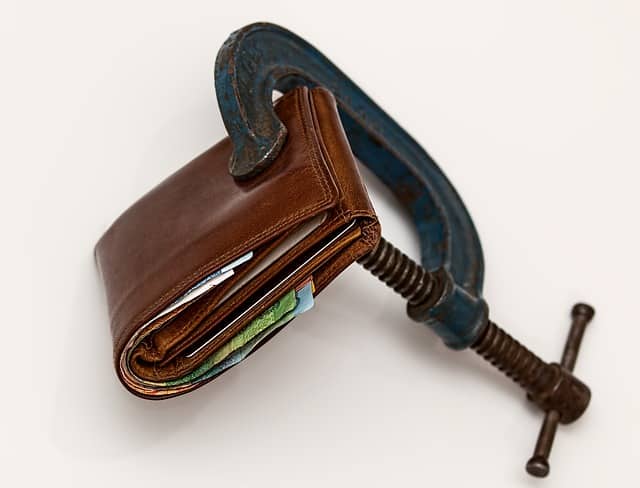Financial concerns are shared by people from all walks of life, each facing their own monetary dilemmas.
In fact, wide-ranging personal financial responsibilities weigh heavily on money managers, as they reconcile earnings against seemingly endless spending demands. And with so much at stake, the pressure only makes it harder to pull-together positive financial outcomes.
If you’re feeling increased anxiety due to an unexpected call for spending or if looming holiday costs have you on edge, it is the perfect time to reflect on your personal finances, with improvements in mind.
Is debt holding you back?
If your cash flow always falls short, feeling hampered, there might be underlying pressure bringing down your finances. To get a handle on persistent shortfalls, first start by analysing your personal debt obligations. Do you carry high-interest credit card debt? Are you struggling to pay minimum amounts during each billing cycle? Does your family rely on borrowed money to cover the cost of basic living expenses?
If you answered yes to any of the above questions, debt may be one of your biggest concerns, calling for immediate attention. When debt grows beyond affordable levels, consider the following steps to start turning things around:
Stop growing debt – The only way to break an unhealthy debt cycle is to stop accumulating charges. Although it may be easier said than done, leaving credit cards at home is the first step toward stabilising household cash flow. When you do need to buy things on credit, look for loans and financing with better terms than traditional high-interest credit cards. And if you can’t cover the cost, but can live without it, discretionary purchases are off the table, waiting until you can one day afford to pay cash for subjective buys.
Consolidate – Under some circumstances, it may be possible for you to reduce your debt payments by taking-on a consolidation loan. Consolidating takes all your existing debt into account, issuing a new loan covering your whole range of obligations. Once established, your consolidation loan calls for a single monthly payment, as opposed to settling with each of your creditors individually. And when you average the price of annual memberships, fees, interest, and other charges you currently pay, a consolidation loan is a more cost effective way to pay down your balance.
Find cash flow balance
Until you find financial equilibrium, your finances remain vulnerable to cash flow crises. With a balanced budget in place, on the other hand, you always know each month’s expenses are covered, so there is less to worry about.
Budgeting needn’t be elaborate, only comprehensive and effective. For the best results, track spending in pre-designated categories, until you are satisfied you’ve captured an accurate snapshot of your financial habits. Then examine spending in each category, with an eye toward savings. Once you’ve trimmed the fat, follow-up with appropriate spending limits, outlining exactly how much you are allowed to spend each month. With a disciplined approach, your finances can be transformed from a losing proposition to a healthy, balanced economy, capable of serving today’s needs and setting the table for a worry-free financial future.
Plot a direct course to financial success
Effective personal financial management responds to evolving spending needs, sometimes calling for on the spot decisions. Yet despite the often unpredictable nature of family finances, planning is still vital to long-term health and security. Not only does a well-conceived plan help you reach your financial goals faster, but it protects you along the way, giving you more options for solving financial dilemmas.
To help ease financial anxiety, start with a 6-month projection, highlighting goals you’d like to achieve in the meantime. As you become accustomed to this new layer of accountability, follow-up with a one-year plan and a five-year plan, each pointing the way toward your most important financial priorities.
Whether you’re facing holiday worries or wrestling with bigger financial issues, it may be possible to ease related stress. Reducing debt, committing to budget balance, and setting-forth a realistic financial plan are three accessible ways to relieve anxiety and refocus your energy on positive financial outcomes.




